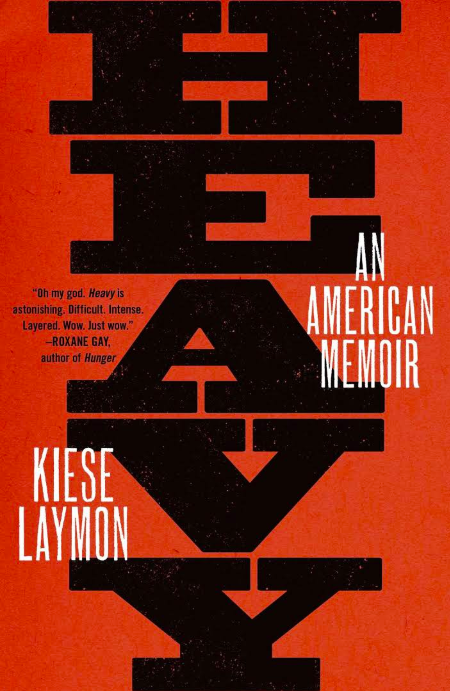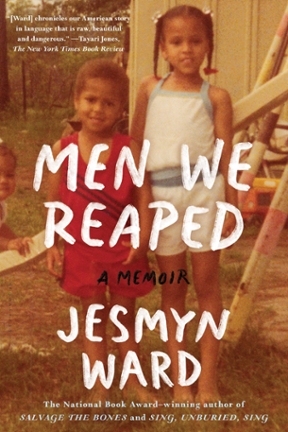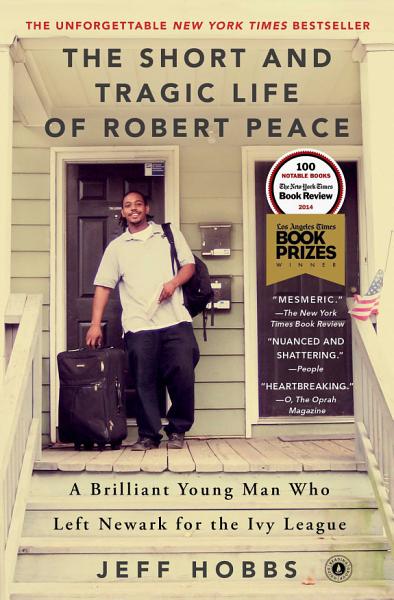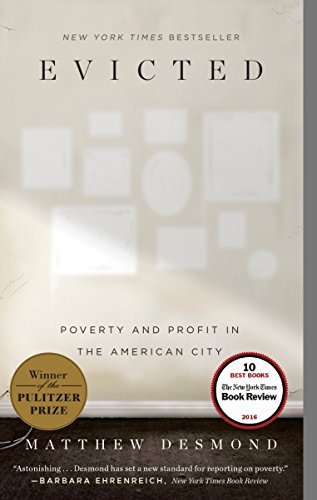Dean's Summer Reading Series Archives
“Our goal is to heighten awareness and spark the conversations necessary to achieve real and lasting change.” – Dean Alan Dettlaff
For the annual Dean’s Summer Social Justice Reading Series, we invite our GCSW community to join our incoming MSW class in their summer reading assignment. Traditionally the first assignment for our MSW students initiates a journey of critical thinking and action related to social justice. It is important to us that our students, the next generation of social work leaders, are grounded in understanding the critical role social justice plays in our profession in keeping with our vision: to achieve social, racial, economic, and political justice, local to global.
Browse the bookshelf of previous selections from these groundbreaking, award winning authors. Their books have taught us, challenged us, shaped us, and propelled us forward towards justice.
We invite you to join us for our 2020 Dean's Summer Social Justice Read!
Heavy: An American MemoirIn Heavy, Kiese Laymon writes eloquently and honestly about growing up a hard-headed black son to a complicated and brilliant black mother in Jackson, Mississippi. From his early experiences of sexual violence, to his suspension from college, to his trek to New York as a young college professor, Laymon charts his complex relationship with his mother, grandmother, anorexia, obesity, sex, writing, and ultimately gambling. By attempting to name secrets and lies he and his mother spent a lifetime avoiding, Laymon asks himself, his mother, his nation, and us to confront the terrifying possibility that few in this nation actually know how to responsibly love, and even fewer want to live under the weight of actually becoming free. |
Winner of the Carnegie Medal for Nonfiction, LA Times Isherwood Prize for Autobiographical Prose, Barnes and Noble Discover Award, and Audible’s Audiobook of the Year, HEAVY was also named one of the Best Books of 2018 by the The New York Times,Publishers Weekly,NPR, Broadly, Library Journal,The Washington Post,Southern Living,Entertainment Weekly, San Francisco Chronicle and The New York Times Critics.
In Heavy, Laymon writes eloquently and honestly about growing up a hard-headed black son to a complicated and brilliant black mother in Jackson, Mississippi. From his early experiences of sexual violence, to his suspension from college, to his trek to New York as a young college professor, Laymon charts his complex relationship with his mother, grandmother, anorexia, obesity, sex, writing, and ultimately gambling. By attempting to name secrets and lies he and his mother spent a lifetime avoiding, Laymon asks himself, his mother, his nation, and us to confront the terrifying possibility that few in this nation actually know how to responsibly love, and even fewer want to live under the weight of actually becoming free.
A personal narrative that illuminates national failures, Heavy is defiant yet vulnerable, an insightful, often comical exploration of weight, identity, art, friendship, and family that begins with a confusing childhood—and continues through twenty-five years of haunting implosions and long reverberations.
About the Author:
Kiese Laymon is a black southern writer, born and raised in Jackson, Mississippi. Laymon attended Millsaps College and Jackson State University before graduating from Oberlin College. He earned an MFA in Fiction from Indiana University. Laymon is currently the Ottilie Schillig Professor of English and Creative Writing at the University of Mississippi. He served as the Distinguished Visiting Professor of Nonfiction at the University of Iowa in Fall 2017. Laymon is the author of the novel, Long Division and a collection of essays, How to Slowly Kill Yourself and Others in America, and Heavy: An American Memoir. Heavy, winner of the Andrew Carnegie Medal, the LA Times Isherwood Prize for Autobiographical Prose and Audible’s Audiobook of the Year, was named one of the Best Books of 2018 by the The Undefeated, New York Times, Publishers Weekly, NPR, Broadly, Library Journal, The Washington Post, Southern Living, Entertainment Weekly, San Francisco Chronicle and The New York Times Critics. Laymon is the recipient of the 2019 Austen Riggs Erikson Prize for Excellence in Mental Health Media. Laymon has written essays,stories and reviews for numerous publications including Esquire, McSweeneys, New York Times, Virginia Quarterly Review, ESPN the Magazine, Granta, Colorlines, NPR, LitHub,The Los Angeles Times, The Guardian,PEN Journal, Fader, Oxford American,Vanity Fair, The Best American Series, Ebony, Travel and Leisure, Paris Review, Guernica and more.
Men We Reaped: A MemoirIn five years, Jesmyn Ward lost five young men in her life-to drugs, accidents, suicide, and the bad luck that can follow people who live in poverty, particularly black men. Dealing with these losses, one after another, made Jesmyn ask the question: Why? And as she began to write about the experience of living through all the dying, she realized the truth-and it took her breath away. Her brother and her friends all died because of who they were and where they were from, because they lived with a history of racism and economic struggle that fostered drug addiction and the dissolution of family and relationships. Jesmyn says the answer was so obvious she felt stupid for not seeing it. But it nagged at her until she knew she had to write about her community, to write their stories and her own. |
Named one of the Best Books of the Century by New York Magazine
Two-time National Book Award winner Jesmyn Ward (Salvage the Bones, Sing, Unburied, Sing) contends with the deaths of five young men dear to her, and the risk of being a black man in the rural South.
“We saw the lightning and that was the guns; and then we heard the thunder and that was the big guns; and then we heard the rain falling and that was the blood falling; and when we came to get in the crops, it was dead men that we reaped.” –Harriet Tubman
In five years, Jesmyn Ward lost five young men in her life-to drugs, accidents, suicide, and the bad luck that can follow people who live in poverty, particularly black men. Dealing with these losses, one after another, made Jesmyn ask the question: Why? And as she began to write about the experience of living through all the dying, she realized the truth-and it took her breath away. Her brother and her friends all died because of who they were and where they were from, because they lived with a history of racism and economic struggle that fostered drug addiction and the dissolution of family and relationships. Jesmyn says the answer was so obvious she felt stupid for not seeing it. But it nagged at her until she knew she had to write about her community, to write their stories and her own.
Jesmyn grew up in poverty in rural Mississippi. She writes powerfully about the pressures this brings, on the men who can do no right and the women who stand in for family in a society where the men are often absent. She bravely tells her story, revisiting the agonizing losses of her only brother and her friends. As the sole member of her family to leave home and pursue higher education, she writes about this parallel American universe with the objectivity distance provides and the intimacy of utter familiarity. A brutal world rendered beautifully, Jesmyn Ward's memoir will sit comfortably alongside Edwidge Danticat's Brother, I'm Dying, Tobias Wolff's This Boy's Life, and Maya Angelou's I Know Why the Caged Bird Sings.
About the Author:
Jesmyn Ward received her MFA from the University of Michigan and has received the MacArthur 'Genius' Grant, a Stegner Fellowship, a John and Renee Grisham Writers Residency and the Strauss Living Prize. She is the first female author to win two National Book Awards for Fiction, for Sing, Unburied, Sing (2017) – which was also shortlisted for the Women's Prize for Fiction (2018) – and Salvage the Bones (2011). She is also the editor of the anthology The Fire This Time, the author of the memoir Men We Reaped and the author of the novel Where the Line Bleeds. She is currently an associate professor of creative writing at Tulane University and lives in Mississippi.
The Short and Tragic Life of Robert PeaceWhen author Jeff Hobbs arrived at Yale University, he became fast friends with the man who would be his college roommate for four years, Robert Peace. Robert’s life was rough from the beginning in the crime-ridden streets of Newark in the 1980s, with his father in jail and his mother earning less than $15,000 a year. But Robert was a brilliant student, and it was supposed to get easier when he was accepted to Yale, where he studied molecular biochemistry and biophysics. But it didn’t get easier. Robert carried with him the difficult dual nature of his existence, trying to fit in at Yale, and at home on breaks. |
This celebrated account of a young African-American man who escaped Newark, NJ, to attend Yale, but still faced the dangers of the streets when he returned is, “nuanced and shattering” (People) and “mesmeric” (The New York Times Book Review).
When author Jeff Hobbs arrived at Yale University, he became fast friends with the man who would be his college roommate for four years, Robert Peace. Robert’s life was rough from the beginning in the crime-ridden streets of Newark in the 1980s, with his father in jail and his mother earning less than $15,000 a year. But Robert was a brilliant student, and it was supposed to get easier when he was accepted to Yale, where he studied molecular biochemistry and biophysics. But it didn’t get easier. Robert carried with him the difficult dual nature of his existence, trying to fit in at Yale, and at home on breaks.
A compelling and honest portrait of Robert’s relationships—with his struggling mother, with his incarcerated father, with his teachers and friends—The Short and Tragic Life of Robert Peace encompasses the most enduring conflicts in America: race, class, drugs, community, imprisonment, education, family, friendship, and love. It’s about the collision of two fiercely insular worlds—the ivy-covered campus of Yale University and the slums of Newark, New Jersey, and the difficulty of going from one to the other and then back again. It’s about trying to live a decent life in America. But most all this “fresh, compelling” (The Washington Post) story is about the tragic life of one singular brilliant young man. His end, a violent one, is heartbreaking and powerful and “a haunting American tragedy for our times” (Entertainment Weekly).
About the Author:
Jeff Hobbs graduated with a BA in English language and literature from Yale in 2002, where he was awarded the Willets and Meeker prizes for his writing. He is the author of The Short and Tragic Life of Robert Peace and The Tourists. He lives in Los Angeles with his wife and two children.
Evicted: Poverty and Profit in the American CityIn Evicted, Princeton sociologist and MacArthur “Genius” Matthew Desmond follows eight families in Milwaukee as they each struggle to keep a roof over their heads. Hailed as “wrenching and revelatory” (The Nation), “vivid and unsettling” (New York Review of Books), Evicted transforms our understanding of poverty and economic exploitation while providing fresh ideas for solving one of twenty-first-century America’s most devastating problems. |
Evicted stands among the very best of the social justice books.”—Ann Patchett, author of Bel Canto and Commonwealth
New York Times Best Seller • Winner of the Pulitzer Prize • One of the most acclaimed books of our time, this modern classic “has set a new standard for reporting on poverty” (Barbara Ehrenreich, The New York Times Book Review).
In Evicted, Princeton sociologist and MacArthur “Genius” Matthew Desmond follows eight families in Milwaukee as they each struggle to keep a roof over their heads. Hailed as “wrenching and revelatory” (The Nation), “vivid and unsettling” (New York Review of Books), Evicted transforms our understanding of poverty and economic exploitation while providing fresh ideas for solving one of twenty-first-century America’s most devastating problems. Its unforgettable scenes of hope and loss remind us of the centrality of home, without which nothing else is possible.
Winner of: The Pulitzer Prize for Nonfiction • The National Book Critics Circle Award for Nonfiction • The PEN/John Kenneth Galbraith Award for Nonfiction • The Andrew Carnegie Medal for Excellence in Nonfiction • The Hillman Prize for Book Journalism • The PEN/New England Award • The Chicago Tribune Heartland Prize • The Barnes & Noble Discover Great New Writers Award • Eastern Sociological Society Komarovsky Book Award • American Bar Association Silver Gavel Award • The Robert F. Kennedy Book Award • The Order of the Coif Biennial Book Award • The Stowe Prize
Gripping and moving—tragic, too.”—Jesmyn Ward, author of Salvage the Bones “Evicted is that rare work that has something genuinely new to say about poverty.”—San Francisco Chronicle
About the Author:
Matthew Desmond is a professor of sociology at Princeton University. After receiving his Ph.D. in 2010 from the University of Wisconsin at Madison, he joined the Harvard Society of Fellows as a Junior Fellow. He is the author of four books, including Evicted: Poverty and Profit in the American City (2016), which won the Pulitzer Prize, National Book Critics Circle Award, and Carnegie Medal, and PEN / John Kenneth Galbraith Award for Nonfiction. The principal investigator of The Eviction Lab, Desmond’s research focuses on poverty in America, city life, housing insecurity, public policy, racial inequality, and ethnography. He is the recipient of a MacArthur “Genius” Fellowship, the American Bar Association’s Silver Gavel Award, and the William Julius Wilson Early Career Award. A contributing writer for the New York Times Magazine, Desmond was listed in 2016 among the Politico 50, as one of “fifty people across the country who are most influencing the national political debate.



